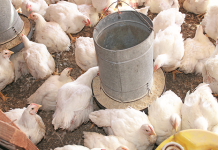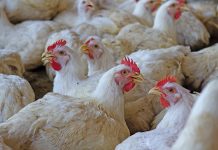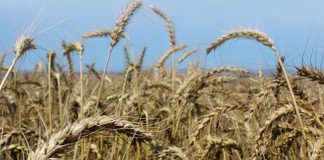This fruit fly is a highly invasive species with a wide range of hosts and it causes severe damage to its host plants. The hosts include commercial fruit such as mango, citrus, guava, papaya and bananas, wild fruits such as Marula and wild figs, as well as ‘vegetables’ such as bell peppers, pumpkin and tomatoes.
The fruit fly has spread across Sub-Saharan Africa after being detected in Kenya in 2003, and now it occurs in many African countries including, Angola, the Democratic Republic of the Congo, Malawi and Zambia as well as the northern parts of Botswana, Mozambique and Namibia. It evidently also occurs in Zimbabwe.
Several new detections were discovered in the Vhembe district in the Limpopo Province this year. The first of the series of detections occurred next to the Limpopo River on 15 February 2012 at the Beitbridge, Weipe and the Pontdrift areas. The other detections occurred in the Musina town, Tshipise and in Louis Trichardt. The process of eradicating the current pest has been initiated in all the affected areas.
The National Plant Protection Organisation of South Africa (NPPOZA), which functions in DAFF through the Directorate Plant Health (DPH) and Directorate Inspection Services (DIS) as well as Directorate Food Import and Export Standards (DFIES), in close collaboration with the fruit industry, has put contingency actions into place since 2006. These include a surveillance programme as part of an early warning system against exotic fruit flies.
Traps to detect exotic fruit flies are placed in production areas, along road transects, at ports of entry and in urban areas close to municipal garbage dumps, hotels, sports grounds and other strategic places countrywide. Currently, there are approximately 1500 traps, with the majority located in northern Limpopo, covering border fences, border posts, roads leading from border posts as well as nearby towns and production units.
Quarantine measures are being implemented in all the affected areas, including the residential areas, to contain and to eradicate the pest. Unsuccessful eradication and establishment of a resident population may lead to the dispersal of the pest from the affected areas to other production areas throughout South Africa. This may result in production losses for small and commercial scale farmers, and additional costly trade restrictions and phytosanitary measures, or even temporary loss of export markets.
As populations increase in one area, fruit flies will disperse to new areas. However, fruit flies spread most often with the transportation of infested fruit from an infested area to a non-infested one. An infested fruit can spread a quarantine fruit fly to a new area. The DAFF wishes to emphasise the importance that no fruit must be brought into South Africa from any country without a permit.
For further information contact:
Mr Selby Bokaba
Chief Director: Stakeholder Relations and Communications
Tel: 012 319-7948
Cell: 082 778 0245
Email: [email protected]













